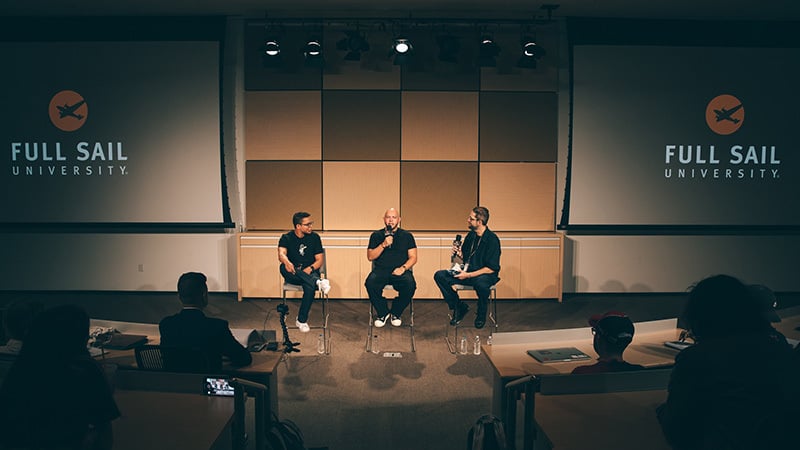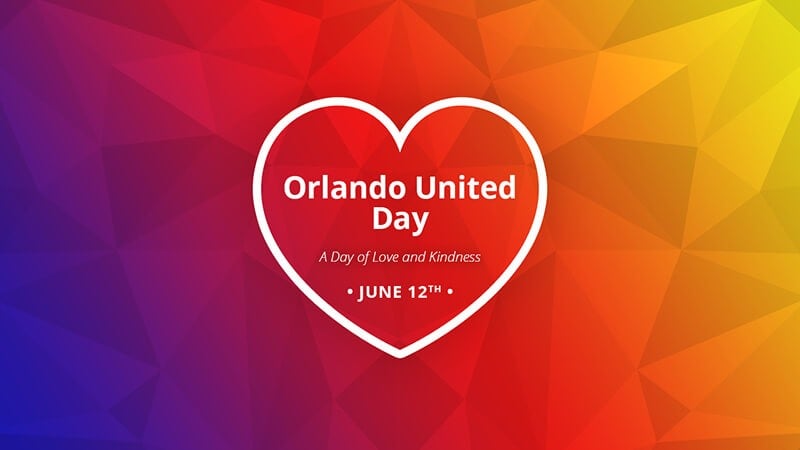Pro Advice
'Artist Inc.': The Value of Record Labels in a DIY-Industry
Earlier this year, Big Machine Records Chief Operating Officer Andrew Kautz visited Full Sail’s On Air Studio to talk to students about working in the music industry. Located on Nashville’s historic Music Row, Big Machine is home to some of the biggest artists in country music - including Taylor Swift, Florida Georgia Line, Tim McGraw, Rascal Flatts, and more.
During the discussion, Andrew shares advice for aspiring artists, addresses the resurgence of vinyl records, and describes some of the ways his company leverages technology to its benefit. He also speaks in-depth about the value of a record label - and its evolving role in today’s DIY-environment.
Early in the discussion, Andrew acknowledges an important caveat: Many artists don't need labels. He cites low recording costs and the ease of using social media as just a couple of reasons some artists can do it all themselves. A label, as he puts it, simply acts as an “amplifier” for those who've tapped all of their resources and still have room to grow. Basically, if you have a dedicated fanbase and the roll-up-your-sleeves-grit needed to expand it, a label can scoop you up and help you soar above the independents.
Andrew’s insight, of course, derives specifically from his experience at Big Machine - which he describes as having a “boutique” feel. (Boutique companies provide high-quality, customized service to a small selection of hand-picked clients.) In this case, Big Machine provides teams of experts that hone and strengthen the talents of already-established musicians. Andrew dubs this approach “Artist Inc.,” and says it represents the future of the label industry.
Artist Development
Before approaching labels, explains Andrew, artists need to know who they are. “They need to be able to build a connection with an audience. That’s nothing you can teach. If they can’t stand on a stage with an instrument and draw somebody in to the story they’re telling, we can’t help them.”
But for those who DO possess these abilities, a label can fine-tune star-quality skills like carrying out interviews or creating an image that works. “Sometimes the artist’s image doesn’t match their persona. Helping them align that is all part of what we do. If there’s talent and a connection, we can make that bigger. We can’t create it. That’s a different genre.”
Teamwork
When you’re signed to a label, says Andrew, “it’s like being a member of a sports team. The value of a label, especially Big Machine, is you have this team that puts their arms around you, that buys into what [you] do. An artist can only grow to be so big without a team, without a group of experts. What we bring to the table is experience of what worked and what didn’t work. Not to say that we are always right, because we learn, every single day.”
Other perks of working as a team include taking advantage of already-cultivated relationships – like, for instance, relationships with high-exposure shows like Good Morning America, The Today Show, or Jimmy Kimmel. “That’s a huge advantage for artists. They get to go in that door that another artist has already opened.”
Overlapping Fanbases
“We try very hard to not have similar artists. We want everyone to be unique and in their own thing, and that’s what affords our numbers – just that five-artist, potentially eight-artist lane. It really gives us the ability to have differentiation and uniqueness. And you’re still going to have overlapping fanbases. I think that’s where the advantage of a label is. A RaeLynn can take advantage of a Danielle Bradbery. Nobody is a fan of one artist. We can identify a range of artists, or a style of music that somebody loves, and you can give them a little more variety.”
Andrew points to mash-ups (like the remix of Florida Georgia Line’s hit single “Cruise”) as an effective way to merge fanbases. “The Nelly fanbases wouldn’t necessarily have come and found Florida Georgia Line, and Florida Georgia Line wouldn’t necessarily have come and found the Nelly fanbases. But when you combine the two, you get the best-selling country single of all time.”
Brand Partnerships
For better or for worse, product endorsements are lucrative ways to help artists and labels to leverage the cost of marketing their music. “Artists have a very unique ability to bring credibility to products, [but] not so much the other way around.” For instance, Andrew explains, an artist can wear a certain brand of clothing, and fans who “identify with or aspire to be like that artist” tend to take on some of those behaviors.
Sometimes it’s not a good fit and sometimes it’s just doing business to pay the bills, he says. “But the ones that work the best are when you have a very similar lifestyle brand that works well with your artist … Instead of it being just a paycheck to the artist, there’s actually a marketing connection. And it’s worked very well to help us reach farther. It doesn’t mean we spend less on marketing a record; it just expands our reach.”
Whether you’re ready to apply or just want to learn more about Full Sail University, our Admissions Representatives are here to help. Call us or request more information.

